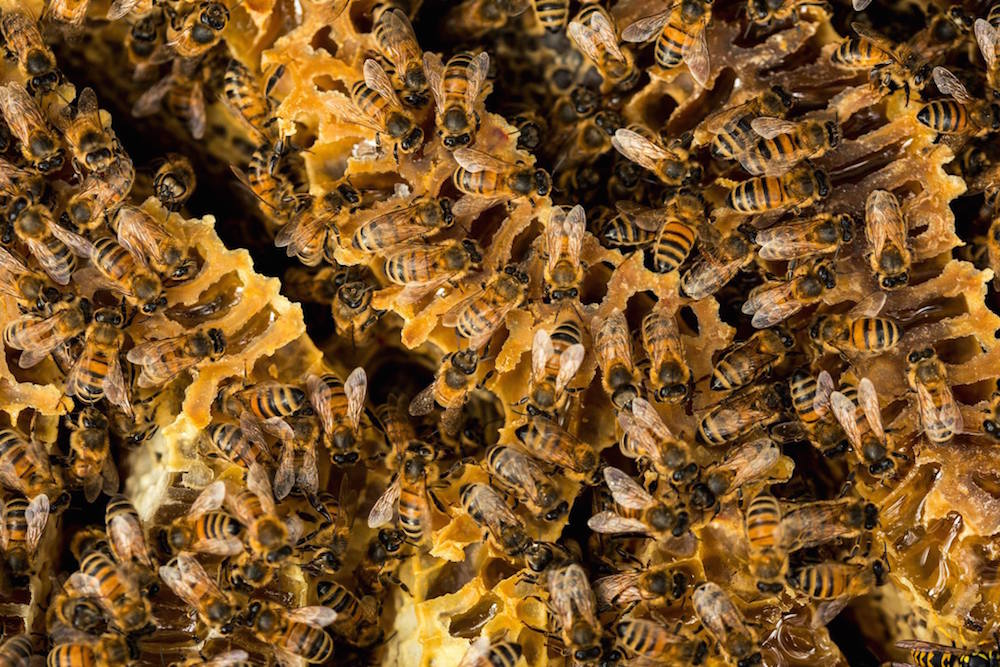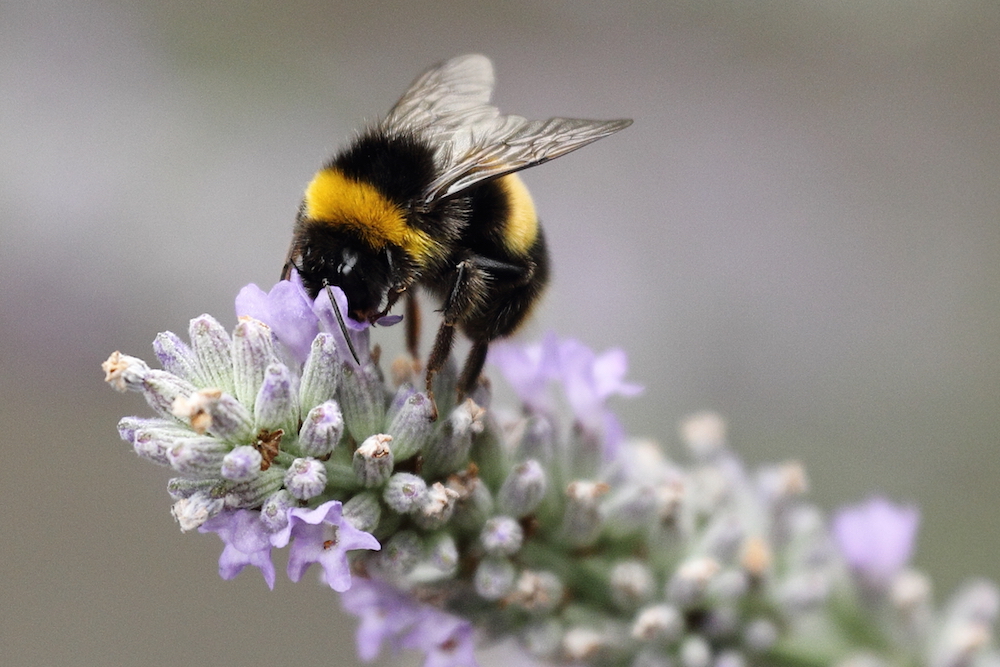Can you cut 1 Tonne of carbon pollution out of your life?
Take the challengeA morning ritual of mine is to sit outside with a cup of tea and contemplate the stresses in my life - what university assignments are due, what will I have for dinner tonight? Why didn’t so-and-so receive a rose on the Bachelor? Amidst these dilemmas, I am comforted by the company that is usually hanging around the Lavender bush. Bees.
Unless you have been hiding under a rock, it is well known that on a global scale, bees are in dire straits. Bee populations have drastically reduced in recent years due to a phenomenon called Colony Collapse Disorder (CCD). The reason for the disappearance is still a bit of a mystery, however, factors such as climate change, pesticides, parasites, pests, diseases and loss of flora have been flagged as possible contributors to the mass bee death. These furry friends might be under more pressure than I am.
READ MORE: Explained: Why our bees are in decline & how to help.

[Image: Miki Simankevicius]
It's a tough life for a bee. Forager bees have the task of sourcing nectar and pollen for the hive, which is not exactly a fly in the park. Bees that wander too far from the hive and get lost will often die from exhaustion. If external threats such as pesticides and parasites kill too many worker bees at once, younger bees are forced to begin their foraging life before they are not as well equipped, consequently dying earlier. Bees also play an integral role in pollinating 30% of the world's fruit and vegetables we consume, that's one third of the world's food sources on their tiny shoulders.
Which is where the CSIRO comes in. Thousands of bees around the world could soon be carrying tiny backpacks, or more technically radio frequency identification (RFID) tags, as part of the Global Initiative for Honey bee Health (GIHH), a CSIRO led research program aimed to give insights into the stress factors that are impacting bee mortality rates. The tags, which measure in at 2.5 x 2.5 millimetres and weigh around 5.4 milligrams, work like a vehicle e-tag system that sense a bee's flight path around the hive. The data then enables scientists to visualise and identify the causes of bee death and other biosecurity risks in order to determine ways to solve the issue. I know you're all thinking it - how on Earth do they manage to glue a tiny chip onto a bee's back? The process involves capturing the bees and putting them into low temperatures to slow down their metabolism i.e. it's probably easier to attach a tag to a tired bee than an energised one. Researchers say that the bees are not harmed in the process, nor does it inhibit their ability to carry on their work.

Although this method does sound fit for a sci-fi film, it is a solution that is gaining momentum across the world. CSIRO Science Leader Professor Paulo de Souza is optimistic that the program will bring robust data to help scientists uncover the stresses on bees in many ways, before they are to vanish completely. "The time is now for a tightly-focused, well-coordinated national and international effort, using the same shared technology and research protocols, to help solve the problems facing honey bees worldwide before it is too late," Professor de Souza said.
One thing for sure though is that the sting will hurt a lot more if the bees are gone for good. The importance of bees is multitudinous, if not for sustaining global food crops, then simply for their joyful presence in our everyday lives.
[Header Image: CSIRO]

